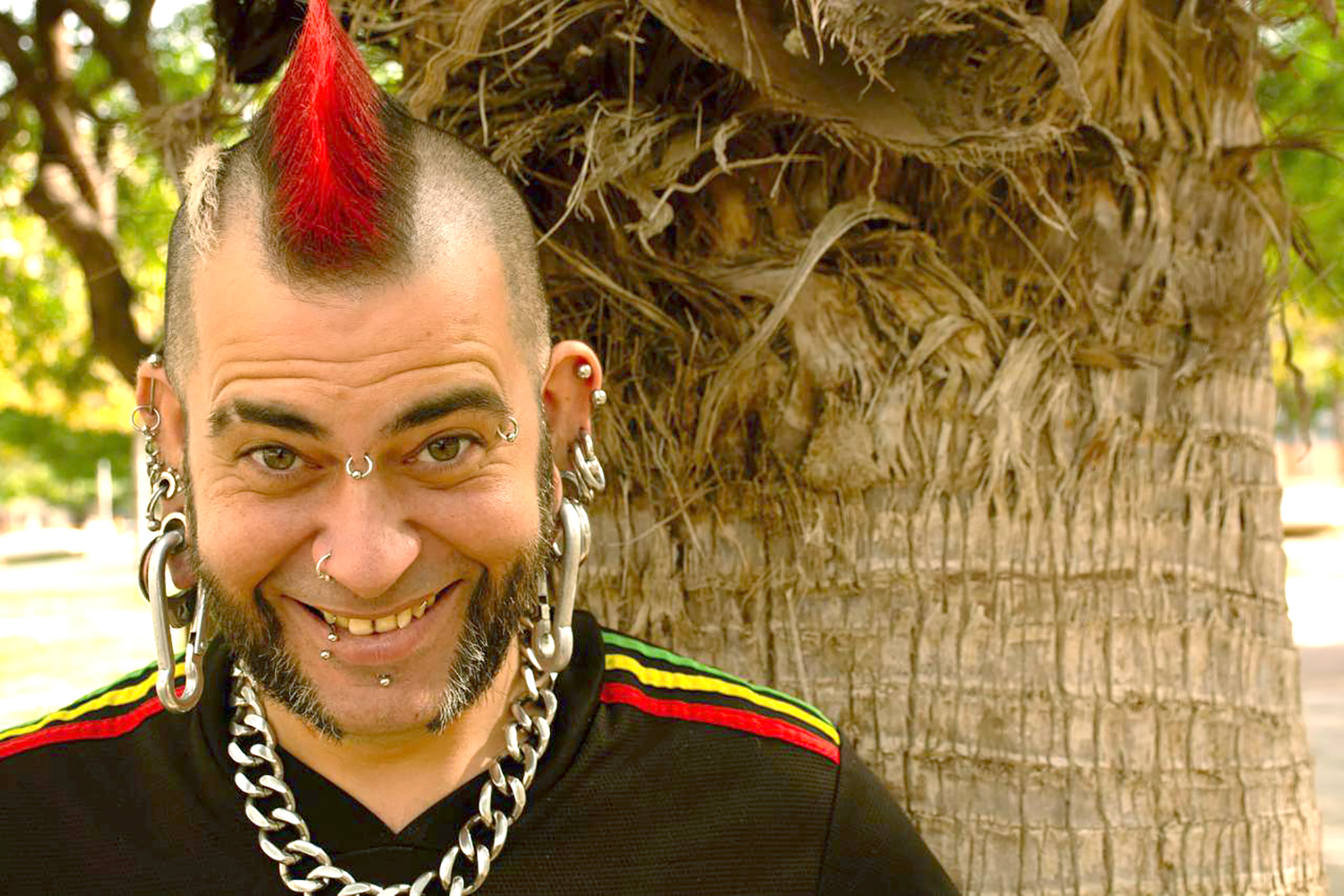"I had many surgical procedures without asking for permission."
- The intersex activist* and the DJ are the Free of Marikarma (Baena, Spain, 1984). In 2003, the fight against the psychiatric system began, and it is currently following the same path as those of the Insania group. In March he participated in the Conference “Psychiatric Oppression and Self-Management of Madness” held in Katakrak (Pamplona). He denounces that interspersed children take away the autonomy of their bodies.

Free, from Marikarma, has known the psychiatric system since its inception. At two years of age, he was diagnosed with Klinefelter syndrome, meaning his parents were told that he was born with XXY chromosomes. He explains that doctors placed this diagnosis between surgery and psychiatry: “Doctors operated, but at the same time psychiatrists included intersex in mental illness because they said it was gender incongruity.” Therefore, since its birth, it has undergone numerous surgical interventions without information or authorization and has been forced to undergo hormonal processes.
The objective of these processes is for intersex children to enter the binomial woman and/or man: “Today the mutilation of the bodies of intersex children gets higher on the table or, at least, if there is debate.” However, he has denounced that the tendency is for the child to perform operations before realizing it, which is a “big mistake”: “As your body grows, you don’t have to follow the path your doctor has given you. The development of the body is very varied and cannot be known when the child is born. It’s an imposition: you’re in a body that you don’t understand and you can’t change because someone has decided for you.”
In Marikarma's case, he was told that the scars he had in his body and the hormones he had to take were for a disease he had in his heart: “At 22, I saw that it wasn’t true, that it didn’t make sense. So, I didn't understand what was going on in my body, and those who had answers at the time were people wearing a white coat. As I did not understand my body, I had no bodily authority.”
This diagnosis was accompanied by other diagnoses. Consequently, he observed that the diagnoses affected him “more and more” and that they “had a lot of weight” in daily life: “I was not able to put words and politicize what was happening to me.” This was about 15 years old.
"Give medicines to cure a suspected disease and test them on our bodies."
Ignorance
All this has provoked him from small dysphoria, ignorance and doubts. Initially, he approached LGTBIAQ+ groups because he believed that what he felt was related to sexual orientation: “In these collectives they were all gay men, perhaps there was some very invisible lesbian and there were no transplant people. In addition, I saw that his doubts focused on the desire of other bodies and not so much on the body itself.”
He later joined the feminist movement. At that time, the main topics to be discussed were the categories of women and men and the division of labour and space. “The feminist movement began to put itself in the social and symbolic center of the body.” However, he did not find his place.
When he met the Trans collectives, especially the Barcelonan collective Guerrilla Travolaca, he observed that there was a relationship between some things the children narrated and what he lived: “I started to see that the scars that were in my body didn’t make sense, finding words and developing tools for self-protection.”
Abolition of psychiatry
In these processes he has had direct contact with the psychiatric system and has suffered strong violence. According to the Free of Marikarma, psychiatry has become “ideology” for its way of functioning and relating to people: “I believe that psychiatry rather than acknowledging that it has committed crimes against humanity, the most ethical way to repair all pain is to abolish psychiatry.”
He adds that what psychiatry seeks is for bodies that are broken to become as productive as possible for capitalism: “It doesn’t make sense. They give medicine to cure a suspected disease and test it in our bodies to see if anyone benefits us.” He adds that this has a lot to do with living conditions: "Bodies are organisms that seek refuge and community. When we force them to play in a concrete way, to smile when they don't want, to wake up early every day and other things, they reveal themselves."
* The term intersex is an abbreviation of intersex that the interviewee uses to empower. We have used it on our own request.
A PART OF THE BODY?
"Eyes. When I meet a person, I look mostly in my eyes. This makes me pass on good or bad sensations and whether I like that person or not. They're probably learned hypotheses, but I feel that with your eyes you can know a lot of things. When I make the mistake of falling in love, I go through the filter of my eyes. Eyes have a lot to do: flush, cry, look to the side, close when there's too much light and open them in the dark. They have complex functioning that I'm never going to understand."










